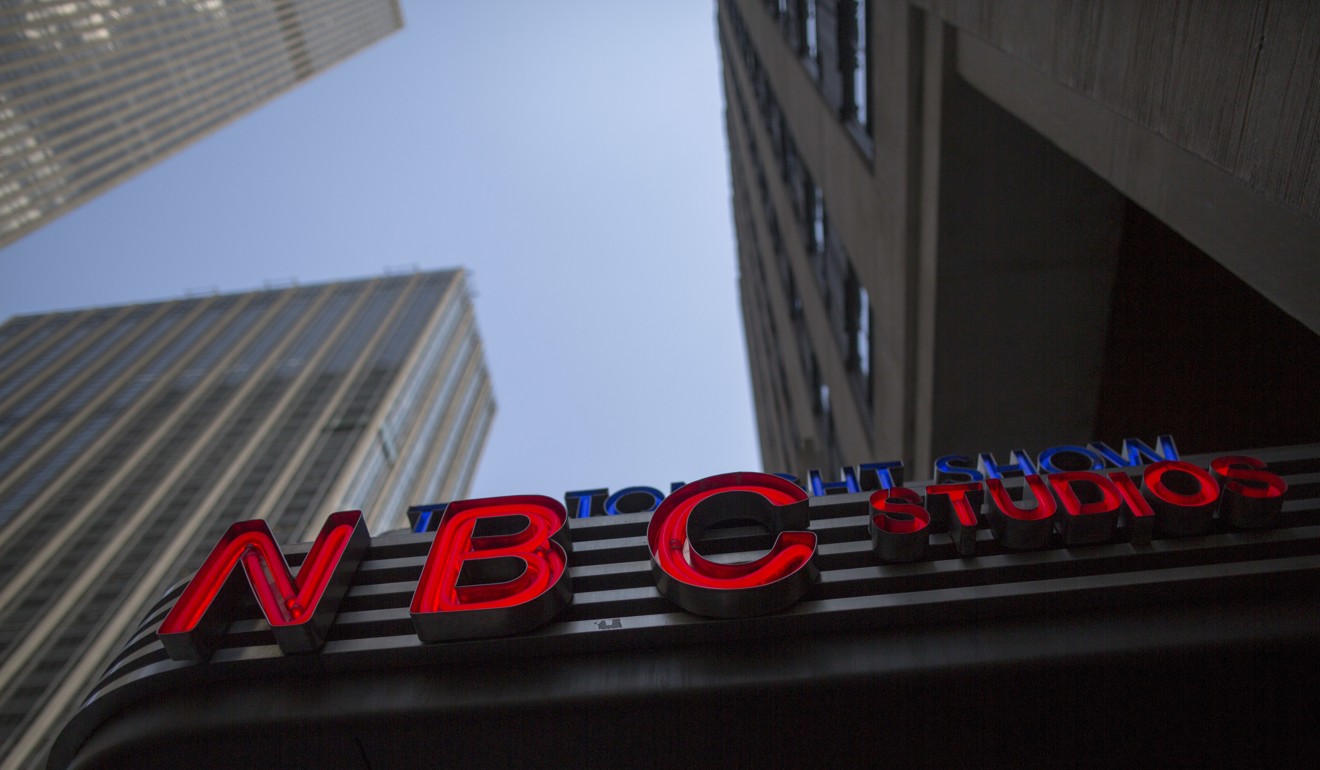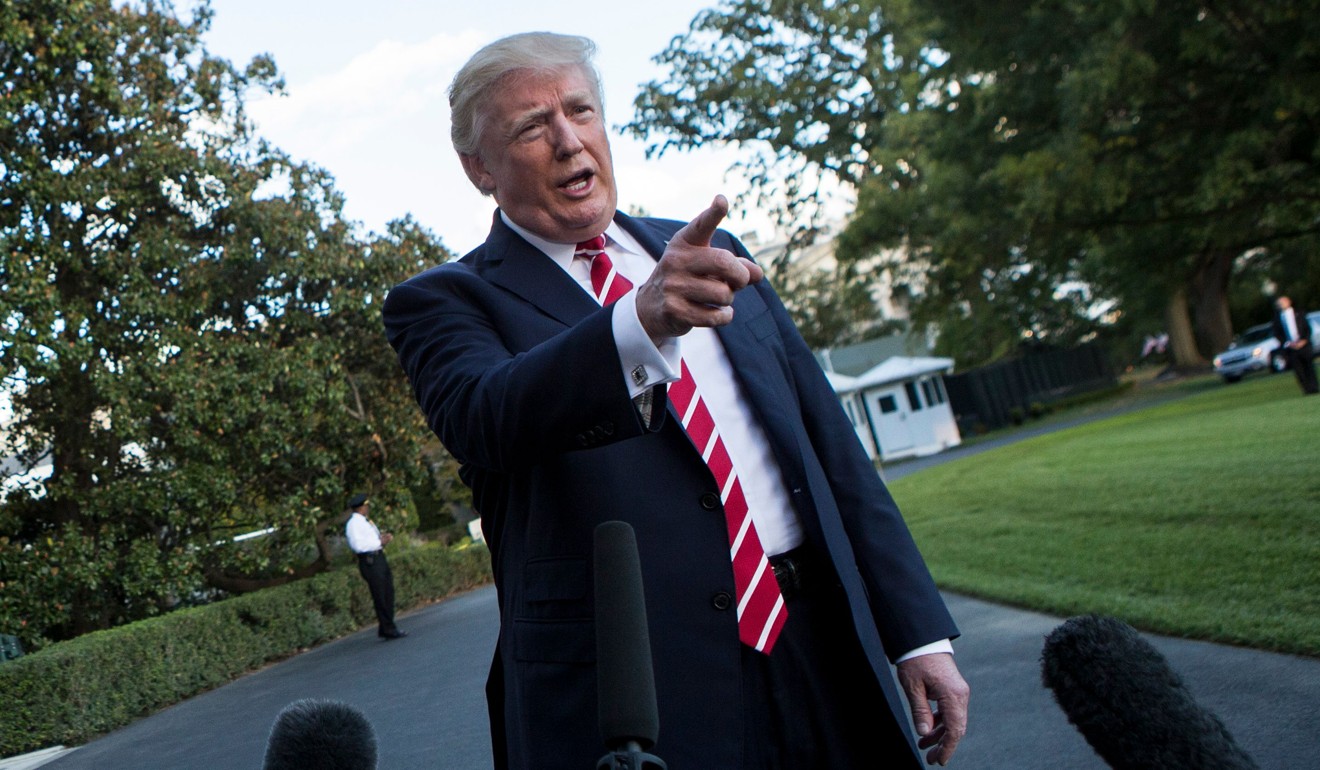
Analysis | Can Trump really shut down NBC? Experts weigh in on his threat to network
‘He can file a complaint like anybody else and say that NBC engaged in lying and there ought to be a license revocation. The problem with that is we have a First Amendment’
In a tweet on Wednesday, US President Donald Trump raised the prospect of retaliating against NBC over a news report, asking “at what point is it appropriate to challenge their License?”
Can he do that?
Probably not, in part because the NBC network he attacked has no licenses (which are issued to TV stations) and in part because the federal government cannot legally police political speech.
The president tweeted: “With all of the Fake News coming out of NBC and the Networks, at what point is it appropriate to challenge their License? Bad for country!”

That would be the First Amendment to the US Constitution, which guarantees freedom of speech. Broadcasters were quick to point that out.
Never going to happen. Trump’s threats are meaningless as a legal proposition
“The founders of our nation set as a cornerstone of our democracy the First Amendment, forever enshrining and protecting freedom of the press,” said Gordon Smith, the former Republican US senator from Oregon who now is president of the National Association of Broadcasters, a trade group. “It is contrary to this fundamental right for any government official to threaten the revocation of an FCC license simply because of a disagreement with the reporting of a journalist.”
That doesn’t mean they haven’t tried. In 1972, President Richard Nixon urged his lieutenants to interfere with the renewal of The Washington Post’s licenses for Florida TV stations. The company’s stock price took a hit, and defending the licenses cost the company more than US$1 million in legal fees, publisher Katharine Graham wrote in her memoir in 1997.
“Of all the threats to the company during Watergate – the attempts to undermine our credibility, the petty slights, and the favouring of the competition – the most effective were the challenges to the licenses of our two Florida television stations,” Graham wrote.
Still, there are barriers of procedure and precedent.

That’s been the case in practice. Tannenwald, who’s been at this for 50 years, can’t recall a case of a broadcaster’s license being revoked over programming.
As for the license challenge process that exists, it doesn’t impinge on political speech. Stations get FCC licenses for up to eight years, which then need to be renewed. Challenges can be filed, but renewal is all but automatic.
License loss “is never going to happen,” said Andrew Jay Schwartzman, a Washington communications lawyer. “Trump’s threats are meaningless as a legal proposition.”
One more layer insulates NBC News from the president’s threat – corporate structure. NBC is owned by Comcast Corp, the cable giant. While NBC programming is broadcast nationwide on more than 200 TV stations, just 10 are owned and operated by Comcast. The remainder of the stations are owned by independent businesses, known as affiliates.
The FCC’s ability to reach through these relationships and get at the networks is limited. For instance, after congressional hearings and other brouhaha surrounding the exposure of singer Janet Jackson’s breast at the Super Bowl in 2004, the FCC fined 20 stations owned by CBS’s corporate parent at the time. The network itself wasn’t penalised. Courts later threw out even the stations’ fines.

